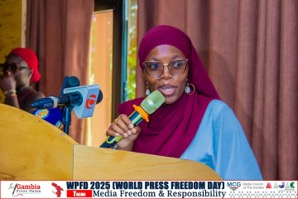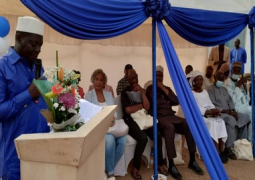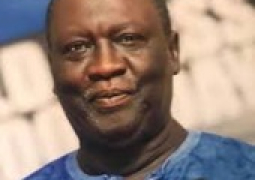
Addressing government officials, civil society partners, and media practitioners, Keita described the day as not only a celebration of the crucial role the media plays in democracy but also a moment to take stock of the conditions under which journalists operate both globally and in The Gambia.
“It is also set aside to reflect, reaffirm, and reenergize our collective commitment to press freedom, media development, and the rights of journalists everywhere,” Keita emphasized.
This year’s commemoration carries the global theme, “Reporting in the Brave New World: The Impact of Artificial Intelligence on Press Freedom and the Media.” Keita said the theme prompts critical examination of how the rapid growth of Artificial Intelligence (AI) is altering the practice of journalism.
“From algorithmic content creation to deepfakes, data mining, and audience targeting, AI is changing not just how we tell stories, but also how truth is accessed, contested, and defended,” she explained.
While acknowledging the potential benefits of AI, GPU prexy highlighted serious concerns about misinformation, bias, surveillance, and the fair remuneration of journalists whose content is often repurposed by AI systems.
Turning to the local theme, “Media Freedom and Responsibility,” Keita said this focus reflects pressing issues within the Gambian media landscape. She noted that while journalists must enjoy their constitutionally guaranteed right to report freely, they must also uphold professional ethics and public accountability.
“Freedom and responsibility must go hand in hand; a free press must also be a fair, accurate, and principled press,” she stressed.
Keita criticized the decline in journalistic standards in some corners of the Gambian media, citing sensationalism, political bias, plagiarism, poor grammar, and a rush to publish without verification.
“These are reflections that the GPU wants media owners, managers and editors to holistically reflect on in order to restore high level of standards in Gambian journalism and public trust,” she urged.
The GPU president also addressed The Gambia’s stagnation in the 2025 Global Press Freedom Index, where the country maintained its position at 58th globally and 10th in Africa. She attributed the lack of progress to arrests of journalists, restrictive legal frameworks, and inadequate government support for media development.
In a strong critique, Keita condemned the recent passage of the Criminal Offences Bill, particularly a provision on “False Publication and Broadcasting,” which she argued revives tools of media repression used during the dictatorship era.
“Despite Gambia’s Supreme Court ruling in 2018 declaring the previous internet law unconstitutional, the current government is making more dangerous laws that would significantly affect press freedom and freedom of expression,” she warned.
She also pointed to the Cybercrime Bill 2023 as a legislative threat to investigative journalism and transparency, noting that stakeholder input from the GPU is routinely ignored by lawmakers.
On the welfare of journalists, Keita painted a bleak picture, especially for young and female reporters, many of whom are underpaid and overworked.
“These conditions are highly unacceptable. We therefore would like to urge media houses to not only sign the GPU’s collective bargaining agreement, but also to fully implement it,” she appealed.
Prexy Keita concluded by urging the media to uphold the same values and standards they demand from others, calling for unity in protecting the rights of journalists and building public trust through ethical journalism.





